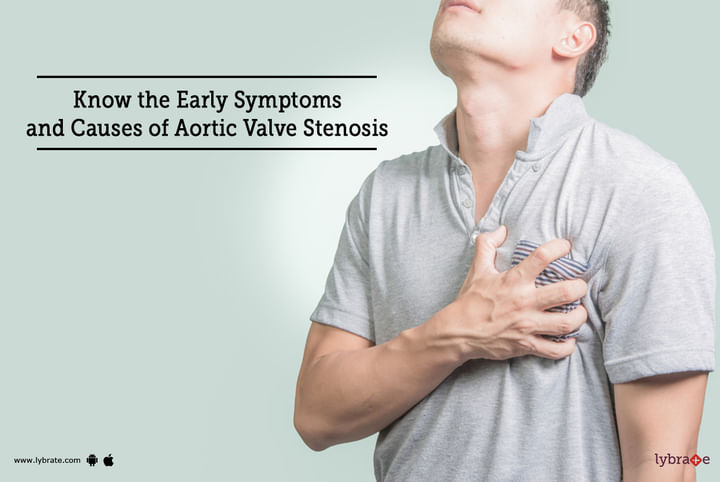Know The Early Symptoms And Causes Of Aortic Valve Stenosis!
Heart problems are at a rise, aortic stenosis is one such heart problem. Aortic Stenosis is considered to be a serious valve disorder. In this condition, opening of the valves is narrowed restricting the flow of blood and creating an extra pressure on the heart to pump blood.
What causes aortic valve stenosis?
There are many conditions that can cause thickening of aortic valve. Some of the common reasons for it are:
-
Buildup of calcium: Blood carries many nutrients along with calcium, but in case calcium level increases in your blood, it can lead to deposition of calcium. If this deposition occurs near valves, they get stiffer and result in poor blood flow.
-
Birth defects: Any structural abnormality in aortic valve, due to improper formation in gestation.
-
Rheumatic fever: Though it is not amongst the common causes of aortic stenosis, but is still a potential risk factor. Rheumatic fever can cause a scar to the aortic valve, which increases the risk of calcium build up.
Risk factors for developing aortic valve stenosis
There are certain risk factors, that increase the risk of developing aortic valve stenosis, few of them are:
- Age: Aging increases the risk of scarring. In most cases, aortic stenosis usually begins in the 60s, but often remains undiagnosed till 70s.
- History: Family history or personal history of chest infections or radiation therapy.
-
Metabolic disorders: Diabetes, hyperlipidemia, hypertension and chronic kidney disease, put you at a greater risk.
What are the symptoms of aortic valve stenosis?
Early signs of aortic valve stenosis, often remain unnoticed. But as the condition grows, you may notice a few symptoms. These symptoms include:
-
Breathlessness, this can be observed even after doing small activities
-
Pain in chest
-
Fainting or feeling lightheaded
-
Fatigue or lethargy
-
Palpitations (rapid or fluttering heartbeat)
-
Change in heartbeat and rhythm
In case of children, improper growth or not gaining enough weight is also a sign of aortic valve stenosis.
Once your doctor diagnoses that you have aortic valve stenosis, he will recommend a few dietary changes and regular screening to prevent further complications.


+1.svg)
